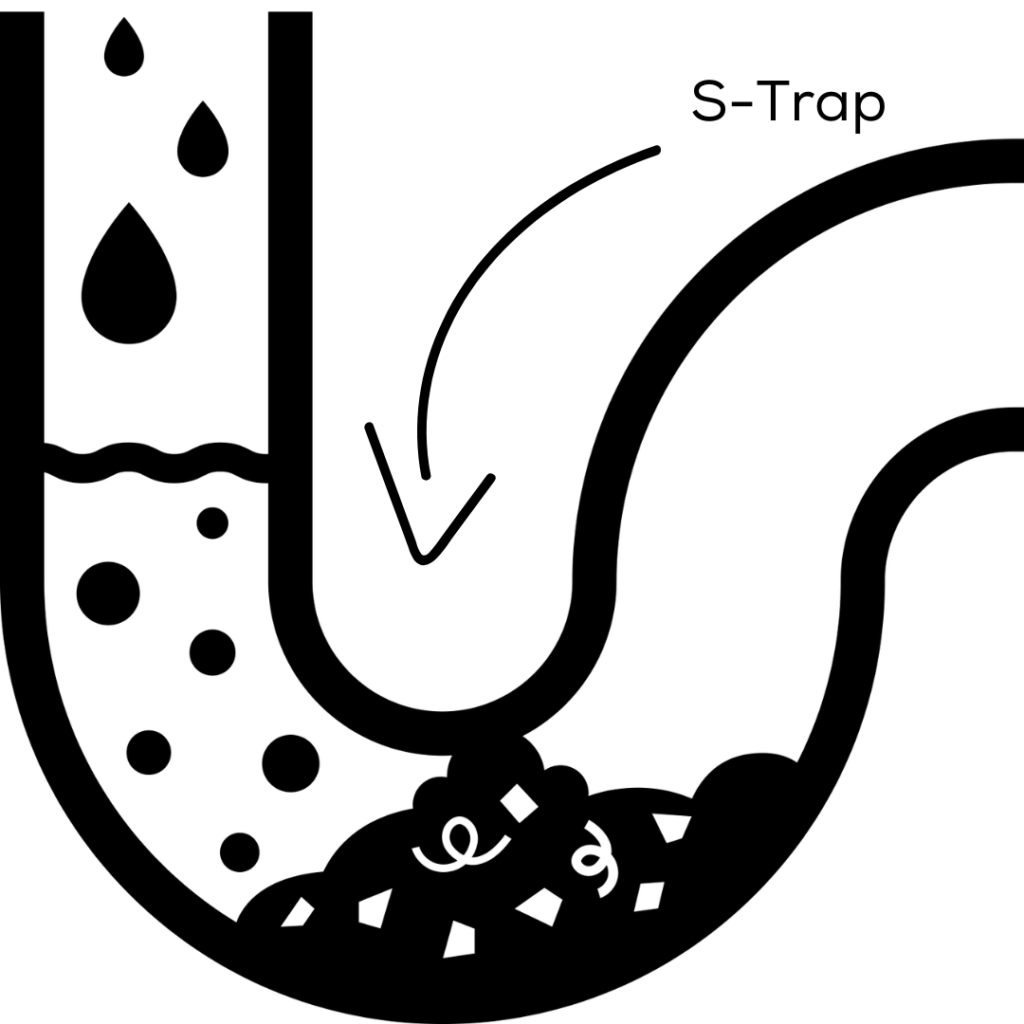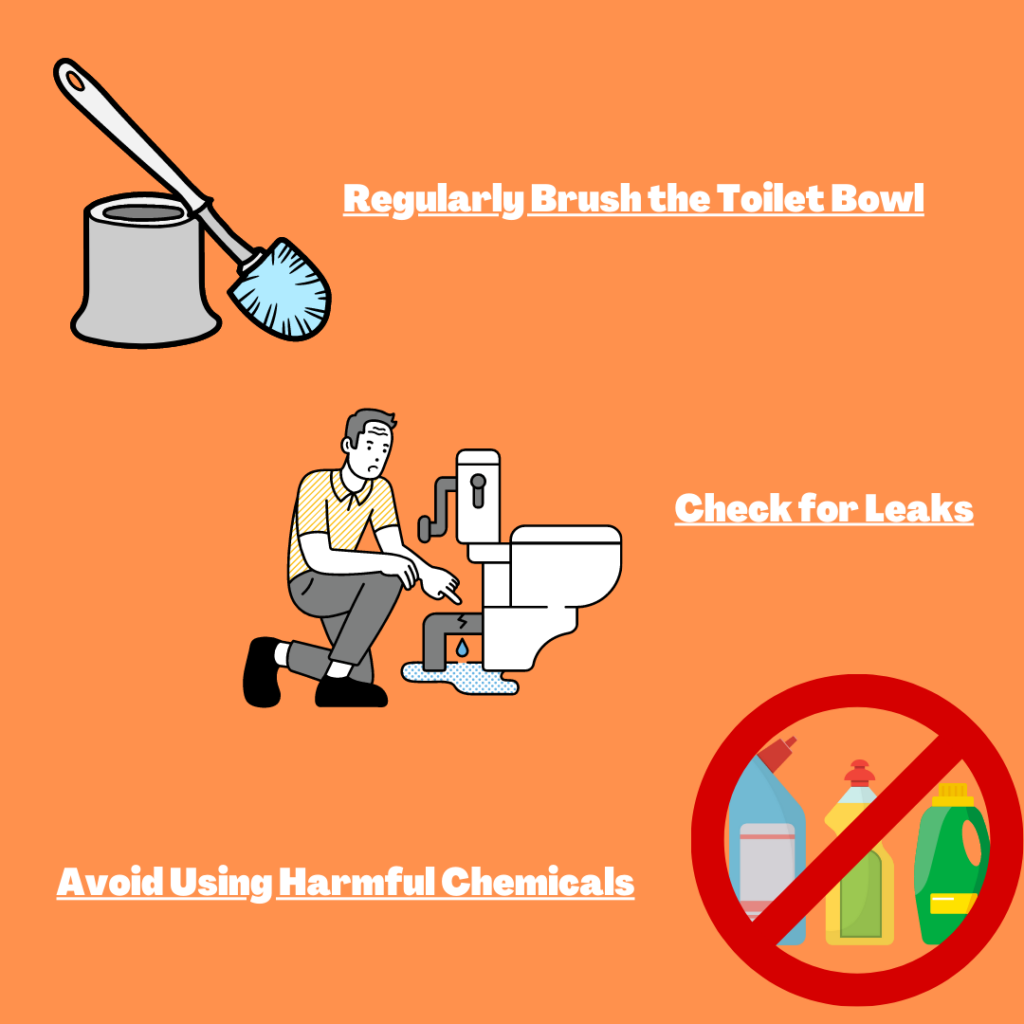Will A Toilet Eventually Unclog Itself? (Unclog with 5 Easy Methods)
As a homeowner, I’ve had to deal with my fair share of clogged toilets! It’s a common issue most of us face at some point, and it can be a real headache to deal with. Though I usually try to address the issue as quickly as possible, in some of my trickier clogged toilet experiences, I’ve found myself wondering, “Will a toilet eventually unclog itself?” If you’ve asked yourself the same question, then you’ve come to the right place.
A toilet can unclog itself under certain circumstances, like when the clog is caused by water-soluble waste, for example. But, most of the time, human intervention is required to fix the clog. To avoid major plumbing issues, it’s a good idea to address toilet clogs as soon as possible.
Read on to learn more about clogged toilets and whether or not any human intervention is required under your specific circumstances.

Why do toilets get clogged?
While the obvious answer is… well, you know… massive bowel movements, but the full reason behind this stinky problem is a bit more complex.
Toilets get clogged when there is enough solid material (waste, toilet paper, or foreign objects) such that the water pressure cannot move it through the internal piping of the toilet and into the main sewer line. If there is a blockage in the pipes, the water dumping into the toilet can fill up the bowl and eventually overflow.
In my experience, understanding the reason behind clogged toilets can help you prevent future blockages. So, let’s start by diving into the basics of how a toilet works and then discuss the most common causes of clogged toilets.
The basics of how a toilet works
Getting a grasp on how a toilet works can help us understand the reasons behind clogs. Let’s look at the basics. When I press the flush handle, the flush valve opens, and water from the tank rushes into the toilet bowl. The force created by the water (aided by gravity) pushes the waste through the S-trap and into the sewer pipes.
Most toilets have an S-trap that prevents sewer gases from entering the bathroom by keeping a small amount of water in the bowl. If the waste material is too large or doesn’t dissolve properly, it can cause a clog in the S-trap or the sewer pipe. This is the immediate cause of toilet clogs.

Most common causes of toilet clogs
In my findings, the majority of toilet clogs result from bad flushing habits or other non-flushable materials getting stuck in the pipes. This list pretty much covers the gambit of ways a person can clog a toilet:
- Excessive toilet paper: Using too much toilet paper can lead to a clog since it takes time for it to dissolve.
- Non-flushable products: Contrary to their labels, some flushable wipes can cause clogs due to their slow dissolving process. This list may also include feminine hygiene products and other types of paper products such as napkins or paper towels.
- Foreign objects: Items like toys, facial tissues, or cotton balls can cause clogs because they don’t break down in the water.
- Pipe issues: Sometimes, the issue isn’t the waste material but instead lies in the pipes themselves. Pipes can become damaged or obstructed due to the build-up of minerals inside the pipe, or out-of-control tree root growth.
Now that we understand the basics, let’s ask the million-dollar question.
Will a toilet ever unclog itself?
In my experience, a toilet can sometimes unclog itself, but it really depends on the cause of the clog.
If the clog is due to toilet paper or other water-soluble materials, there’s a chance that it will eventually dissolve and resolve the issue. However, not all substances will break down so easily, and in some cases, you may need to take further action. Not to mention the fact that leaving a toilet clogged for long periods of time will produce a disgusting smell!
There are several factors to consider when determining if a toilet will unclog itself. First, think about the type of material that’s causing the clog. Check the list above for some common causes. While some of these items may eventually dissolve or break down, others won’t.
While it’s always possible that a toilet could unclog itself over time, I wouldn’t recommend giving it a try. Taking matters into your own hands and attempting to clear the clog yourself can save you time, potential damage, lots of embarrassment, and costly plumbing repairs in the long run.
How to safely unclog your toilet
In this section, we’ll cover various techniques to safely unclog a toilet, ranging from using a plunger to more advanced methods, such as draining snakes and chemicals.
In cases where the clog isn’t breaking down on its own, there are several methods I’ve found to be effective in getting your toilet unclogged. Take a look at the methods in the list below, then read about each method to find the one that works best for you:
- Plunging
- Toilet auger or snake
- Chemical or enzyme drain cleaners
- Water Bucket
- DIY methods
Plunger technique
Of course, the most common and effective way I’ve found to unclog a toilet is by using a plunger.
If you decide to go with this classic solution, you’ll need to follow the following steps:
- Ensure there is enough water in the bowl to cover the plunger’s rubber cup. If needed, add more water.
- Place the plunger over the hole in the toilet, making sure it creates a seal.
- Maintain the seal and plunge up and down rapidly, keeping the plunger under the water level and lifting it only an inch or so on every upstroke. This may take multiple plunge cycles, of a dozen plunges per cycle, to loosen the clog.
- Flush the toilet to see if the clog has cleared. If not, repeat the process.
Drain snake method
Another method to unclog a toilet is by using a drain snake or toilet auger.
Here’s how:
- Insert the end of the snake into the toilet drain.
- Crank the handle to extend the snake into the pipe, breaking up the clog as it goes.
- Once the clog is cleared, retract the snake and flush the toilet to ensure it is properly unclogged.
Using chemicals
Some chemicals can do the trick, but I recommend using chemical drain cleaners as a last resort, as they can be harsh on your plumbing system.
When using chemicals, always follow the manufacturer’s instructions and take the necessary safety precautions, such as wearing gloves and ensuring proper ventilation.
Water bucket
Pouring a bucket of water ‘down the hatch’ while also pulling down on the flush handle can provide enough power to dislodge a hardy bowel movement. This is usually the second option I go for after attempting to plunge my way out of the problem!
Other methods
There are alternative ways to unclog a toilet without using a plunger or harsh chemicals. Check out some of these methods below:
- Use a combination of baking soda and vinegar. This solution can create a natural chemical reaction to help loosen the clog.
- Pour hot water into the bowl, followed by liquid soap. This is a another great strategy for breaking up the clog.
- Use a straightened wire coat hanger to reach and dislodge the clog (wrap it with a rag and tape it to prevent damage to the toilet).
Try these strategies first before calling a plumber. Nobody wants to pay $100+ just to have someone come out to the house for 5 minutes, plunge a little harder than you did, and then get back in their truck and drive away! Make sure you give it your best shot before forking out any of your hard-earned money over a silly problem like this.
Preventing future toilet clogs
So we’ve already answered the question, “Will a toilet eventually unclog itself,” by showing how toilet clogs caused by water-soluble materials such as toilet paper should eventually work themselves out.
However, avoiding clogs is much better than waiting for them to resolve. In this section, I’ll share some tips on preventing future toilet clogs.
Toilet maintenance tips
With proper maintenance, I’ve found that I can significantly reduce the chances of my toilet getting clogged. Let’s look at the list below to find a couple of tips to keep you out of this kind of situation in the future:
- Use a toilet brush regularly: I often use a toilet brush to clean the bowl and keep the water flowing smoothly.
- Check for leaks: It’s essential to periodically inspect the toilet for any signs of leaks. This can help me address any issues before they escalate.
- Avoid using harsh chemicals: Some cleaning products can damage my toilet’s plumbing. I prefer using eco-friendly and non-corrosive cleaning agents.

Flushable vs Non-Flushable Items
The simple key to preventing clogs is knowing what can and cannot be flushed down the toilet. Below, I’ve listed some items that are flushable and others that should never be flushed:
| Flushable | Non-Flushable |
|---|---|
| Human waste | Wipes (even if labeled as flushable) |
| Standard toilet paper | Diapers and feminine hygiene products |
| Q-tips and cotton balls |
By keeping non-flushable items out of my toilet, I can prevent clogs from forming and avoid the need to manually unclog it or wait for it to unclog itself.
By following these toilet maintenance tips and knowing what should and shouldn’t be flushed, I hope to avoid future toilet clogs and keep my plumbing in good shape.
Summary of whether or not a toilet will unclog itself
So, will a poop-clogged toilet unclog itself? If the clog is made up of organic waste like poop and toilet paper, my experience tells me, yes. These materials tend to dissolve in water and flow down the drain line after some time. However, it doesn’t always work out that way, and you may want to take action sooner rather than later. If this is the case, make sure you follow the methods above when trying to figure out how to unclog a toilet.
As we discussed above, inorganic and solid items like toys, combs, and diapers will not unclog themselves. In these situations, manual intervention is necessary or might even require professional help. It’s important to remember that leaving a clog unresolved can lead to water damage and potential health complications due to bacteria build-up.
To prevent clogs in the first place, I always avoid flushing non-flushable items down the toilet. Some products, like flushable wipes, can still cause clogs even though they’re marketed as safe to flush. Being mindful of what goes into the toilet and addressing any clogs promptly helps keep the bathroom running smoothly.
Will a toilet eventually unclog itself?
If the material used to clog the toilet is water-soluble, the problem may eventually resolve itself. One example of water-soluble materials is toilet paper, which could be a common cause of clogs.
How long does it take for the toilet to unclog itself?
The actual time it takes water-soluble products to completely disintegrate will vary. In most cases, it’s simply better to attempt to resolve the clog yourself.
Does poop dissolve in water?
Yes, feces is water soluble, but it could take an hour or more for it to begin to break down in your toilet. By that time, the smell could be unbearable!
Is it ok to leave a clogged toilet overnight?
If you leave a clogged toilet overnight, you may find that the issue has resolved itself by morning. With that being said, you may not want to leave a toilet clogged for that long as it will smell horrible!
Let Us Know How We’re Doing!
Did this expertly prepared resource answer your question?
Do you have another question about home maintenance, home improvement projects, home appliance repair, or something else?
Get more information, send in questions and keep the discussion going by contacting the I’ll Just Fix It Myself company customer service team at at 1-800-928-1490 or Email us at [email protected]
